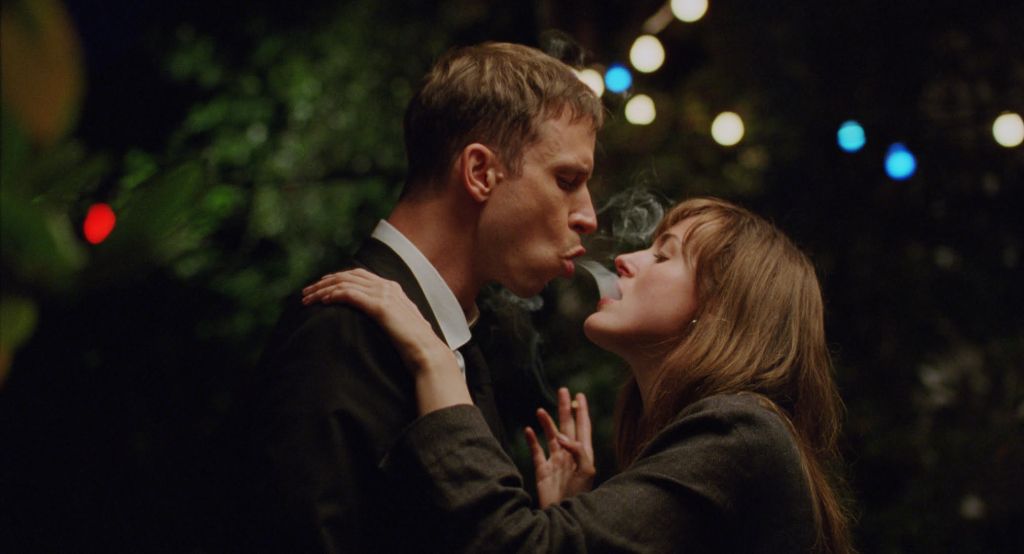LFF day three and Mark Cousins takes a look at the 21st Century filmmakers pushing the artform to new limits in The Story of Film: A New Generation, Alice Krige’s discovery of witches in the Scottish Highlands in She Will, and Joachim Trier’s romantic comedy The Worst Person in the World.
The Story of Film: A New Generation (dir. Mark Cousins)
Ten years ago, documentarian and film essayist Mark Cousins released his mini-series The Story of Film: An Odyssey, taking a personal journey through the history of cinema and looking at all the filmmakers invented and re-invented the language of cinema through the hundred-plus years of the artform. Now he returns with an addendum to his own ground-breaking work, this time focusing on the filmmakers of the new millennium who have pushed the boundaries and broken the rules, proving that cinema, in all its forms and manifestations in the world of television and streaming, is alive and well.
Like his previous work, Cousins avoids a standard chronological overview of the history of cinema and rather works on a series of themes and moods to compare and contrast films from different eras and countries. He draws lines of influence and discovery between disparate filmmakers and styles to show how the language of cinema not only evolves over time but how common it is no matter where in the world it is being spoken. A New Generation is no different, but this time he uses genre (horror, musical, documentary etc.) as a framework to bounce from film-to-film, to show the many ways in which filmmaking limits are being pushed to reveal new opportunities in how we engage with cinema.
Cousins’ style does not overwhelm the viewer but guides them gently through a series of propositions, intercutting scenes and clips with little philosophical asides. This approach works beautifully to give the ideas breathing room and to allow contemplation on some of the lesser-known films he is drawing attention to, such as the 2012 documentary Propaganda, which was sold as an anti-American propaganda film smuggled out of North Korea but was in fact made in New Zealand by filmmaker Slavko Martinov as a scathing indictment of Western culture and politics. He also brings to light comparisons that would have otherwise gone unnoticed, like the similarities between the staircase dance in Joker and “Let it Go” in Frozen; both scenes an exaltation of self-actualisation, but one aimed squarely at kids while the other carries much darker and adult implications.
In this era of piracy, streaming services and overabundance of television programming, and the fear that cinemas will become obsolete in the wake of Covid, it is refreshing to get Cousins’ wonderfully optimistic approach to the way film transforms and transports us. He reminds us that cinema is not just a location or an artform but an act of collective dreaming that we will forever be drawn toward and into. Watching The Story of Film: A New Generation, the worries that we have lost a little bit of that magic of the cinema fades away and it becomes apparent that the magic just might be even stronger.
Director: Mark Cousins
She Will (dir. Charlotte Colbert)
How do the powerless regain power? How, after years of suffering from the trauma of abuse, does someone find the strength to move on and reclaim their life? These are some of the issues at the heart of Charlotte Colbert’s dark, supernaturally tinged drama She Will. The resulting film has a lot to say about female agency and cleverly layers this into slightly surreal and symbolic narrative that lacks a little momentum, but settles into something resembling a mood piece, centred on a character study of an ageing movie star, played exquisitely by inimitable Alice Krige.
Veronica (Krige) travels to a remote villa in the Scottish Highlands, looking to convalesce after a double mastectomy has left her in a weakened state. A former child star, she is also retreating from the public gaze, avoiding any contact with people except for her devoted nurse Desi (Kota Eberhardt). When they arrive at the lodging, Veronica learns the hillside was the site where dozens of witches were burned hundreds of years ago. And so begin the dreams, where Veronica falls under the spell of a mysterious group of women out in the woods. But soon Veronica begins to learn that these encounters have imbued her with a strange ability that will help her regain her power.
Director Colbert offers up a classic horror set up in the early going of She Will: an ageing movie star, a young naïve nurse, a creepy resort in the middle of nowhere. All these elements suggest a killer or malevolent force waiting around some dark corner and feels on the face of it like something Dario Argento would have made in his hey-day (interestingly the Italian horror maestro serves as producer here). But almost immediately, Colbert and co-writer Kitty Percy deviate from this to settle into a slow burn, supernaturally charged exploration of memory, trauma and psychogeography. Unfortunately, the downshift into this more contemplative territory risks the film a descent into inertia but survives its runtime via Krige’s affecting performance and Clint Mansell’s epic, choral score which adds a much needed, almost operatic dimension to the proceedings.
Director: Charlotte Colbert
Cast: Alice Krige, Malcolm McDowell, John McCrea
Writer: Kitty Percy, Charlotte Colbert
The Worst Person in the World (dir. Joachim Trier)
At the end of every episode of RuPaul’s Drag Race, host RuPaul proclaims “If you can’t love yourself, how in the Hell are you gonna love somebody else?” and this philosophy blossoms at the core of Joachim Trier’s beautifully realised romantic comedy The Worst Person in the World, charting the journey of a young woman in search of her own identity.
Julie (Renate Reinsve) is a woman in her late-20s living in Oslo, Norway. She is a bit of a dilettante in college, flipping from major to major, unsure if she wants to be a doctor, a photographer, or a writer. She gets into a series of on-again/off-again relationships until she finally meets comic book artist Aksel (Anders Danielsen Lie) and they move in together. Seeming happiness sets in but not for long, as Julie begins to wonder what she is missing out on. Her returning restlessness culminates in a decision that sets her off on another new path in her life. But will Julie ever settle down? Does she even know what she wants out of life?
Rounding out his unofficial “Oslo Trilogy” (featuring previous films Reprise and Oslo, August 31st), The Worst Person in the World is a beautifully unassuming, modern coming-of-age tale, which is both very well observed and wryly funny. It is easy to see how Julie’s motives and choices could be construed as selfish, that she is the worst person in the world, but what director Trier and actor Reinsve (who is sublime in her Cannes Best Actress winning role) achieve is empathy for the young woman as she tries to navigate the world and discover what she really wants out of life. She is ultimately putting herself first, which is an act of self-love and while it is important to make room for other people in your life, you must first make room for yourself.
Director: Joachim Trier
Cast: Renate Reinsve, Anders Danielsen Lie, Herbert Nordrum
Writer: Joachim Trier, Eskil Vogt



